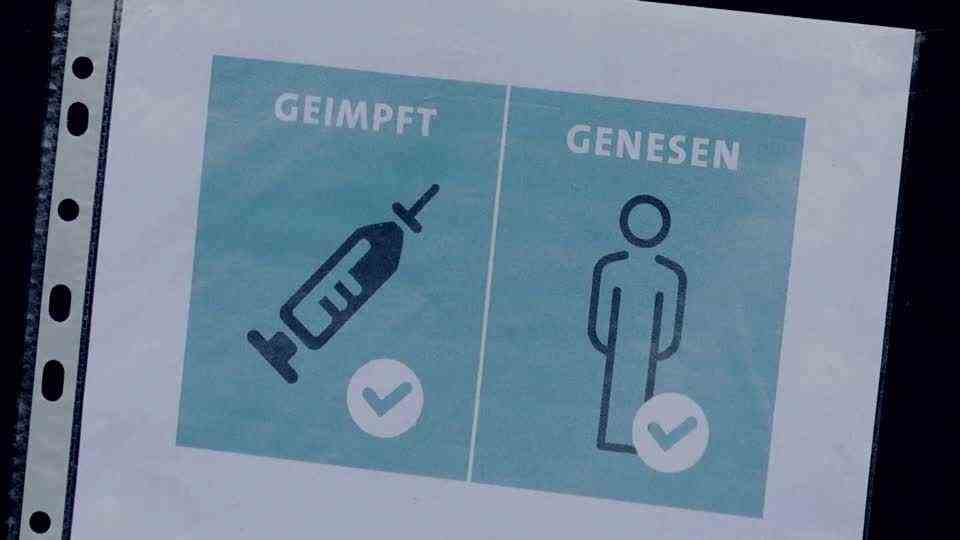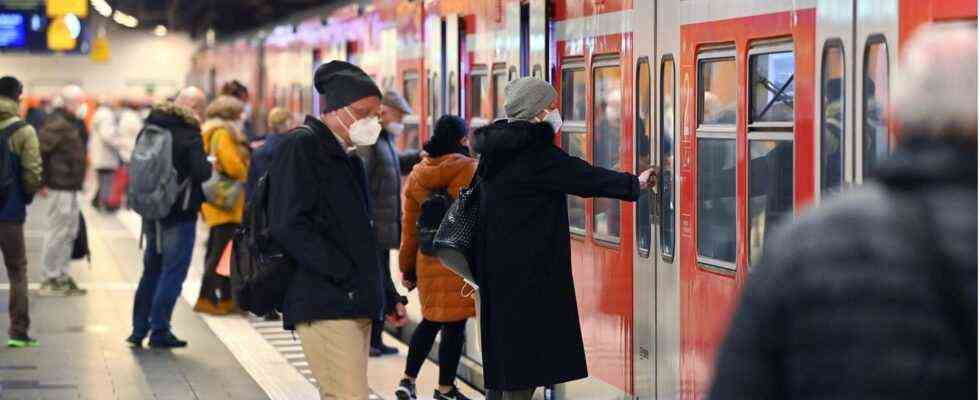Corona measures
3G at the workplace and in trains: who should control what
The 3G regulation against Corona will not only apply in Munich in the future. But it is not yet quite clear who should control and enforce this
© FrankHoermann / SVEN SIMON / Picture Alliance
The new Infection Protection Act provides for strict anti-corona measures: 3G in the workplace as well as in buses, trains and airplanes. But who should control this has not yet been clarified in all cases.
The federal and state governments are pulling together again in the corona pandemic: The heads of state government agreed on Thursday with Chancellor Angela Merkel (CDU) and Vice Chancellor Olaf Scholz (SPD) on uniform application of the 2G rules and committed to 3G in the workplace and in public transport. The latter measures are in the new Infection Protection Act, which the Bundestag also passed on Thursday and which the Bundesrat approved on Friday.
A new paragraph provides for “nationwide uniform protective measures” in order to contain the spread of the pandemic. Workplaces in which physical contact “with one another or with third parties cannot be excluded” may therefore only be entered by employers and employees who have been vaccinated, recovered or tested (3G). In the future, the 3G rule will apply nationwide in buses and trains.
Nine people tell why they didn’t get vaccinated
11 images
Who controls 3G in the workplace?
The draft law states that employers are obliged to monitor compliance with the requirements “by means of verification checks on a daily basis and to document them regularly”. Otherwise there is a risk of a fine. Anyone who accepts a test or vaccination offer immediately before starting work in the company may also enter it beforehand. Otherwise, proof of vaccination, proof of recovery or a test certificate must be kept available for control or deposited with the employer. PCR tests must be a maximum of 48 hours old, rapid antigen tests 24 hours.
Employees and visitors to medical facilities are obliged to submit the required evidence. If employees refuse to accept the 3G rule, employers can try to make it possible to work without contact with other people. Labor Minister Hubertus Heil (SPD) pointed out that unvaccinated people without a current test face financial consequences: Then, for example, continued payment of wages is in question. The Greens emphasized that redundancies could not be ruled out in the future.
Who controls 3G in buses and trains?
Bus and train passengers must submit a negative test if they are not vaccinated or have recovered. The regulation also applies to domestic flights, with the exception of taxis and school transport. The type and manner of controls is left to the transport company. As a rule, they will probably be done during the ticket inspection.
The transport ministers of the federal states are critical of the 3G rule for buses and trains with a view to practical implementation. “Ultimately, this can only be done with random checks,” said the chairman of the Transport Ministers’ Conference (VMK), Bremen’s Senator Maike Schaefer (Greens), on Wednesday after a VMK video conference called at short notice by the German press agency. “No transport company in all of Germany can manage to check all the passengers when they get on buses and trains,” said Schaefer. This could be different for long-distance transport of Deutsche Bahn, but not for public transport.
From the point of view of the Verdi union and the transport company, the controls should not be carried out by their own employees. Verdi called for trained security personnel to be deployed with the participation of the regulatory authorities. The Association of German Transport Companies spoke out in favor of security partnerships with the police and local authorities. Effective random checks of 15 million passengers a day posed considerable problems for the industry, explained VDV Managing Director Oliver Wolff.

Who controls in restaurants and shops?
Restaurants and bars can remain open if they offer their seats in compliance with the respective hygiene rules. But there could be closings if it gets too tight to abide by the rules. Shops should stay open, closings are not planned. However, the mask requirement still applies here. The control is still left to the respective operators.
Further source:Draft Infection Protection Act on bundestag.de.

